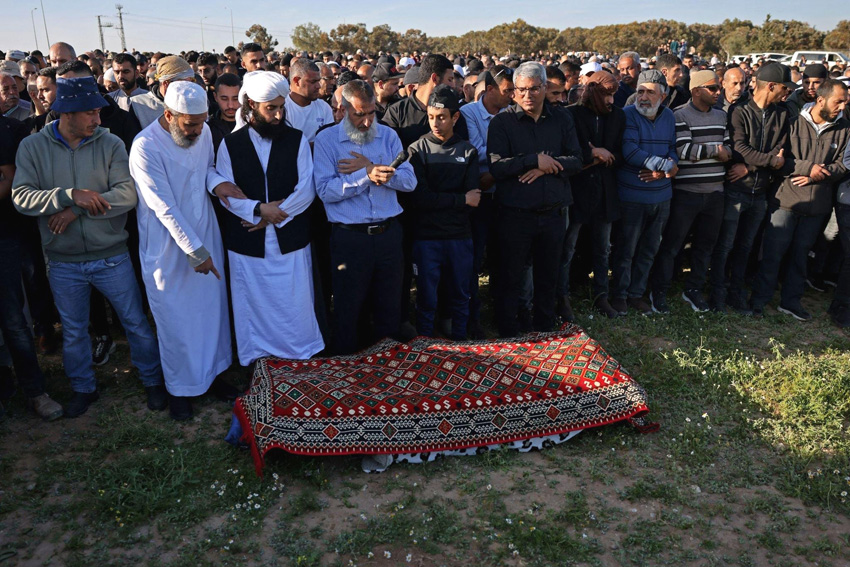A GENERAL STRIKE has been held across towns and cities in the occupied Palestinian territories following the Israeli regime’s killing of a Palestinian youth near the al-Aqsa Mosque compound in the occupied Old City of Jerusalem on the second Friday of the holy fasting month of Ramadan.
Palestinian media said the strike, organised by the Higher Follow-up Committee for the Arab Masses in Israel, spread throughout the occupied Palestinian territories on Sunday in response to the fatal shooting of 26-year-old Muhammad al-Osibi by the Israeli occupation forces near the Chain Gate, one of the entrances to the al-Aqsa Mosque compound.
‘The committee has called for the organisation of struggle vigils in various Arab towns this evening in response to the crime, after it organised vigils in a number of Arab towns yesterday evening,’ Palestine’s official Wafa news agency said on Sunday.
Osibi’s funeral in his hometown of Hura in the occupied Negev on Sunday was a mass demonstration against ‘all policies of occupation, oppression and racial discrimination’.
Palestine’s Shehab news agency shared photos of the all-out strike across various towns and cities in the occupied Palestinian territories.
Israeli forces shot Osibi on Friday evening as he tried to protect a Palestinian girl who was being assaulted by the occupation troops and prevented from entering the al-Aqsa Mosque compound at the Chain Gate.
After the shooting, the Israeli military closed the doors of al-Aqsa Mosque and mobilised a large number of its forces in the courtyards of the holy site and imposed restrictions in the Old City.
Thousands of Muslim worshippers had crossed Israeli military checkpoints deployed early on Friday morning before arriving at al-Aqsa Mosque for the second Friday prayers of Ramadan.
Since the start of the holy month, the Israeli regime has imposed strict restrictions on the entry and exit of Palestinians to and from the gates of the al-Aqsa Mosque. Footage from some of the gates showed Palestinians scuffling with Israeli forces who blocked the gates. A number of Palestinians were arrested at the scene.
Amid heightened tensions with Palestinian worshippers, Israeli settlers are also pressing ahead with their frequent incursions and provocative rituals at the holy site.
Hardline Israeli legislators and settlers regularly storm the al-Aqsa Mosque compound in the occupied city, a provocative move that infuriates Palestinians. Such mass settler break-ins almost always take place at the behest of Tel Aviv-backed temple groups and under the auspices of the Israeli police in Jerusalem.
The al-Aqsa Mosque compound, which sits just above the Western Wall plaza, houses both the Dome of the Rock and the al-Aqsa Mosque.
The Jewish visitation of al-Aqsa is permitted, but non-Muslim worship at the compound is prohibited according to an agreement signed between Israel and the Jordanian government in the wake of Israel’s occupation of East Jerusalem in 1967.
- Tens of thousands of protesters have marched across the occupied territories for the 13th consecutive week against a package of controversial and highly unpopular ‘legal reforms’ proposed by Israeli Prime Minister Benjamin Netanyahu.
More than 150,000 protested the coastal city of Tel Aviv on Saturday, Israeli media outlets said, while smaller rallies were held in more than 100 other towns and cities.
The participants were seen carrying placards condemning Netanyahu’s hard-right cabinet.
The protests have been a weekly fixture since late December, when the prime minister announced his intention to implement the ‘reforms’ which he claims are meant to redraw the power balance between the regime’s executive branch and the judiciary by preventing the Supreme Court from striking down the former’s decisions.
They also seek to give Israeli lawmakers a bigger say in the committee that selects the judges.
Netanyahu’s opponents see his cabinet’s drive to pass the legislation on the so-called reforms as a threat to the Supreme Court’s independence, describing it as a ‘legal coup’.
They also accuse Netanyahu of trying to use the reforms to quash possible judgments against him as he is on trial in three corruption cases.
During Saturday’s protest in Tel Aviv, the regime’s forces, including the mounted police, clashed with the anti-Netanyahu demonstrators and, at times, deployed water cannons to disperse them.
Last Monday, overwhelmed by mounting public pressure, twelve, consecutive weeks of protests, violent demonstrations, and dissenting political voices from inside and outside the regime, the premier finally announced a ‘pause’ in the passage of the legislation through the Knesset (parliament),and agreed to delay his judicial overhaul plan.
‘We don’t believe anything that comes out of Bibi’s (Netanyahu) mouth. We believe it’s just a political stunt aimed at stopping the protest,’ said one protester about the so-called suspension.
Last Tuesday, representatives of parliamentary factions began talks at the residence of the regime’s president, Isaac Herzog, to formulate legislation that would be acceptable to both sides of the political spectrum.
Many political commentators and opposition figures have, however, voiced scepticism about the chances of Herzog’s mediation efforts, while the right-wing ruling coalition has said it would complete the legislation in the next parliamentary session if the talks fail.
